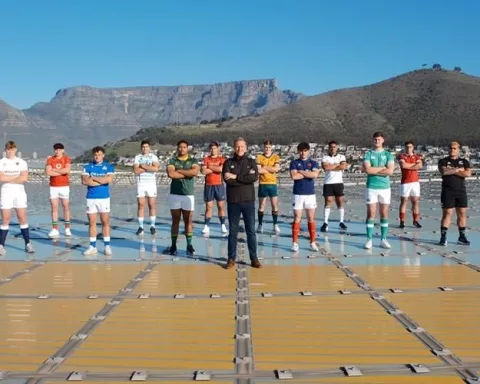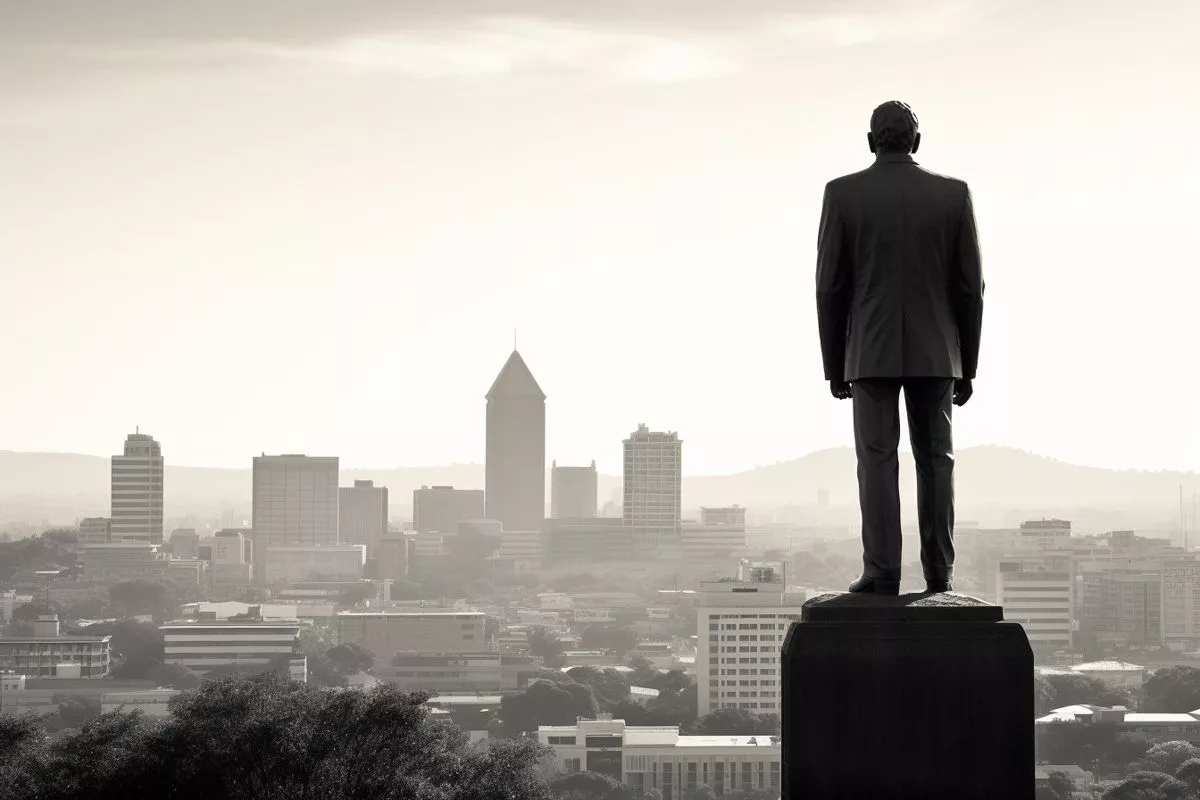Jacques Nienaber is a highly respected rugby coach who made a big impact during his four years as head coach of the South African national team, the Springboks. He achieved some incredible wins, including the World Cup victory and a historic triumph against the British & Irish Lions. Despite his success, he made the difficult decision to leave the team due to the personal toll that professional sports can take on one’s family life and relationships. He has now taken on a new role as Leinster’s senior coach, which allows him to balance his professional pursuits with more time for his family.
Why Did Jacques Nienaber Leave the Springboks?
Jacques Nienaber’s decision to leave the esteemed Springboks after four years as head coach left many wondering why. The mystery was resolved when Nienaber assumed his new position as Leinster’s senior coach. His decision to leave was not underpinned by a lack of ambition or a yearning for a new environment but rather stemmed from a truth that often goes unnoticed in the demanding world of professional sports – the significant impact it can have on one’s personal life and relationships.
A Legacy with the Springboks
In the highly competitive universe of international rugby, few individuals have carved out a legacy as substantial as Jacques Nienaber. Over his four-year stint as the head coach of South Africa’s national team, the Springboks, Nienaber has orchestrated victories that have indelibly marked the annals of rugby history. Of these triumphs, two stand out prominently, the glorious World Cup win in France and the history-making series win against the powerful British & Irish Lions.
Yet, despite the myriad victories and accolades, Nienaber made an unexpected decision. He chose to leave the esteemed Springboks, leaving a vacuum filled with a legacy of grand triumphs. This led to widespread speculation, with many wrestling with the question – why did he leave?
The Personal Toll of Professional Sports
The mystery was resolved when Nienaber assumed his new position as Leinster’s senior coach. His decision to leave the Springboks was not underpinned by a lack of ambition or a yearning for a new environment. Rather, his decision stemmed from a truth that often goes unnoticed in the demanding world of professional sports – the significant impact it can have on one’s personal life and relationships.
In his own words, Nienaber confessed, “I just felt I had lost a lot of time with my family. That’s why the decision was made between January and February.” His wife, who had stood by him during the rollercoaster ride of his career, supported his sentiments, stating, “I don’t think we can do another four years of this.” His children too voiced their longing for more time with their father.
Nienaber, understandably, was filled with trepidation when he was presented with the opportunity to join Leinster. He recognized the need to constantly challenge oneself to stay sharp and successful as a coach. Simultaneously, he also acknowledged the importance of striking a balance between his professional pursuits and family time.
The Ideal Balance: Leinster
The move to Leinster, thus, presented the perfect equilibrium. In this new role, Nienaber was able to continue to challenge his coaching skills, without having to forgo those treasured moments with his family. Acknowledging the high expectations that lay ahead, Nienaber still found solace, stating, “There’s going to be big expectations, but at least I have some family time as well.”
Nienaber’s decision to step away from international rugby was understood and accepted by his confidants in the sports world, including his close friend Rassie Erasmus. His move was not a criticism of his tenure in South Africa nor an active pursuit of international opportunities. Instead, it was a deliberate choice dictated by the need for personal time and space.
A New Chapter with Lessons of the Past
As Nienaber embarks on this new journey, he brings with him the valuable lessons learned in South Africa, prepared for the challenges that await him in the Irish province. His initiation into his new home was celebrated by Leinster Rugby with a tweet showing Nienaber, clad in Leinster blue, at the legendary RDS Arena.
Nienaber’s bold transition from the Springboks to Leinster provides a compelling insight into the sacrifices athletes and sports professionals often make, and the bravery it takes to prioritize personal well-being over professional accolades. His story serves as a powerful reminder that even in the high-octane world of international rugby, the sport is ultimately played by individuals who carry more than just a rugby ball. These individuals also bear the love and responsibilities towards their families, which deserves as much acknowledgement and respect as their victories on the field.
1. Why is Jacques Nienaber a highly respected rugby coach?
Jacques Nienaber is a highly respected rugby coach due to his achievements during his four years as head coach of the South African national team, the Springboks. He achieved incredible wins, including the World Cup victory and a historic triumph against the British & Irish Lions.
2. Why did Jacques Nienaber leave the Springboks?
Jacques Nienaber left the Springboks due to the personal toll that professional sports can take on one’s family life and relationships. He decided to take on a new role as Leinster’s senior coach to balance his professional pursuits with more time for his family.
3. What are some of the triumphs that Jacques Nienaber achieved as head coach of the Springboks?
Jacques Nienaber achieved two prominent triumphs as head coach of the Springboks – the World Cup win in France and the history-making series win against the British & Irish Lions.
4. What was the reason behind Jacques Nienaber’s decision to leave the Springboks?
Jacques Nienaber’s decision to leave the Springboks stemmed from the significant impact professional sports can have on one’s personal life and relationships. He felt that he had lost a lot of time with his family and wanted to prioritize personal well-being over professional accolades.
5. What was the response of the sports world to Jacques Nienaber’s decision to leave the Springboks?
Jacques Nienaber’s decision to step away from international rugby was understood and accepted by his confidants in the sports world, including his close friend Rassie Erasmus. It was not a criticism of his tenure in South Africa nor an active pursuit of international opportunities. Instead, it was a deliberate choice dictated by the need for personal time and space.
6. What does Jacques Nienaber’s transition to Leinster signify?
Jacques Nienaber’s transition to Leinster signifies the important lesson that athletes and sports professionals often make sacrifices and the bravery it takes to prioritize personal well-being over professional accolades. His story serves as a powerful reminder that even in the high-octane world of international rugby, the sport is ultimately played by individuals who carry more than just a rugby ball and bear love and responsibilities towards their families.












